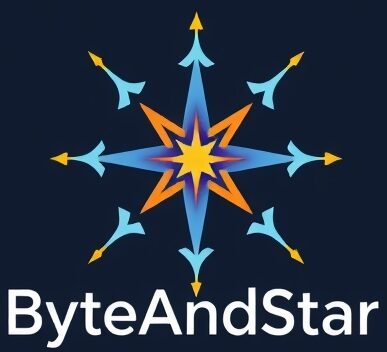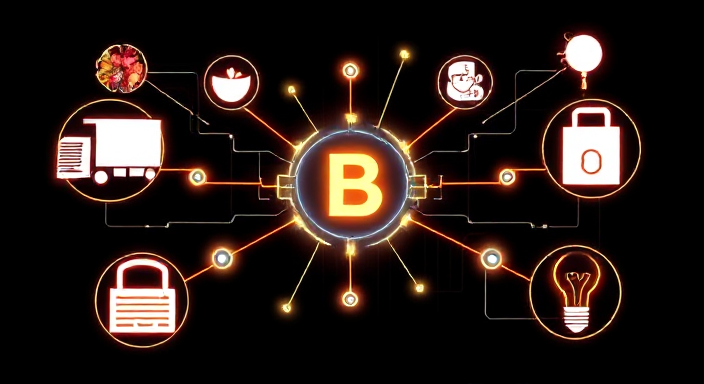When most people hear the word “blockchain,” their minds instantly jump to Bitcoin or other cryptocurrencies. While blockchain technology gained fame as the backbone of digital currencies, its true potential extends far beyond crypto. Imagine a world where transparency, security, and efficiency transform industries—that’s the promise of blockchain.
In this blog, we’ll explore how blockchain applications beyond cryptocurrency and how it is revolutionizing sectors. Let’s unravel this tech in a way that’s easy to understand & packed with real-world stories. 😉
Blockchain Basics: The Foundation of Trust ⚖️
Blockchain is essentially a digital ledger that records transactions across a network of computers, serving as the backbone for countless blockchain applications beyond cryptocurrency. Its key features are:
Distributed Ledger: Information is shared across a network, ensuring no single point of control or failure.
Immutability: Once a record is added, it’s nearly impossible to alter.
Consensus Mechanisms: Decisions are made collectively, ensuring accuracy and trust without a central authority.
These principles make blockchain a powerful tool—but its applications stretch far beyond crypto. Let’s dive in!
Transforming Supply Chain Management: From Farm to Fork 🌾→🍲
Ever wondered if the “farm-to-table” label on your meal is accurate? Blockchain makes it possible to trace every step of a product’s journey.
Real-World Example:
Walmart uses blockchain to track fresh produce. By scanning a QR code, consumers can see where their food came from, ensuring safety and authenticity. This level of transparency builds trust and reduces food fraud.
Blockchain applications beyond cryptocurrency are transforming industries like fashion by verifying sustainable practices and helping tech companies combat counterfeit parts. 💊
Revolutionizing Healthcare: A Prescription for Efficiency 💉
Imagine a world where your medical records are secure, accessible, and controlled by you. Blockchain is making this a reality by ensuring data privacy and interoperability.
Real-World Example:
Estonia has implemented a blockchain-based healthcare system, giving citizens control over their health data while ensuring secure access for doctors. This reduces administrative overhead and improves patient outcomes.
Blockchain also helps verify the credentials of healthcare professionals, preventing fraud and ensuring quality care. ✨
Secure Voting Systems: Democracy Reinvented 🏛️✔️
Election integrity is critical, yet traditional systems are prone to errors and fraud. Blockchain offers a transparent, tamper-proof solution for digital voting.
Real-World Example:
In 2019, Sierra Leone piloted a blockchain-based voting system, enabling secure and transparent elections. By recording each vote on an immutable ledger, this technology ensures accuracy and public trust.
Could blockchain bring an end to disputes over election outcomes? Time will tell, but the potential is undeniable. 🙌
Digital Identity Management: Own Your Identity 🌐
In a world of increasing cyber threats, digital identity theft is a growing concern. Blockchain provides a secure way to manage and verify identities.
Real-World Example:
Microsoft’s Azure platform offers decentralized identity solutions, allowing individuals to control their personal data. This eliminates the need for intermediaries and enhances privacy.
From accessing financial services to proving your age online, blockchain-powered digital IDs could become the norm. 🔑
Protecting Intellectual Property: Creativity Secured ✉️✨
Artists, writers, and creators often struggle to protect their work from plagiarism. Blockchain applications beyond cryptocurrency help protect intellectual property by providing a way to timestamp and prove ownership of creative works.
Real-World Example:
The platform Ascribe enables creators to register and track their digital art on the blockchain. This ensures that ownership is clear and disputes are minimized.
With blockchain, your creative work gets the recognition and protection it deserves. ❤️
Other Innovative Applications 🎡
The blockchain revolution doesn’t stop there! Here are a few more areas where it’s making waves:
Gaming: Blockchain-based games like Axie Infinity let players truly own in-game assets, which they can trade or sell.
Internet of Things (IoT): Blockchain enhances IoT security by ensuring that devices communicate securely and reliably.
Real Estate: Smart contracts simplify property transactions, making them faster and cheaper.
The Bright Side and the Hurdles 🙌⚠
Benefits:
Transparency: Blockchain creates trust by providing a clear record of transactions.
Security: Its decentralized nature makes it resistant to hacks.
Efficiency: Automation through smart contracts reduces costs and speeds up processes.
Challenges:
Scalability: Handling large volumes of data remains a hurdle.
Regulation: Governments are still figuring out how to oversee blockchain applications beyond cryptocurrency.
Complexity: Implementing blockchain requires technical expertise and investment.
Looking Ahead: The Future of Blockchain 🔥
As technology matures, we’re likely to see blockchain integrated into everyday life. From improving global trade to enhancing personal privacy, blockchain applications beyond cryptocurrency offer endless possibilities.
For those curious about diving deeper, check out this guide to blockchain technology or explore how companies like Hyperledger are advancing the field.
Are you ready to embrace the blockchain revolution? Share your thoughts in the comments below! And read ByteAndStar for new topics 😊


From a competitive standpoint, this gives a real advantage. Companies/individuals who understand key insight will be ahead of those still using outdated approach. Great strategic thinking!
This blog post is worth the read – trust us!
Can you be more specific about the content of your article? After reading it, I still have some doubts. Hope you can help me. https://www.binance.info/ar/register?ref=PORL8W0Z
Please share your doubts, i will try to resolve them.